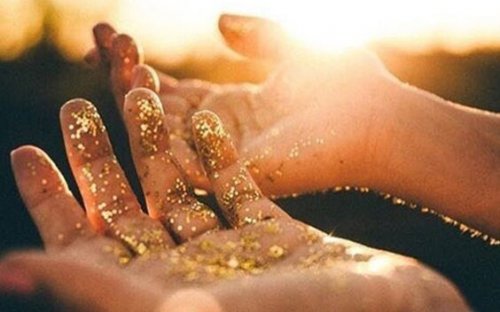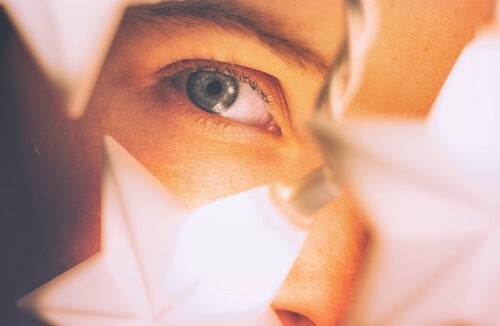(Stillness in the Storm Editor) Pleasure and joy, even bliss, is a whole-brain activity. Stimulation is the gateway to fulfillment, meaning, adventure, and positive emotion. In the modern world, stress limits joy because it causes hyper-focus. When you’re focused on a task for work, school, home, or life in general, unless you feel joy, inspiration, and playfulness during the process, you’ll lose sensitivity. Why? Because if we contextualize a goal as stressful, then our brain naturally withdraws from everything else. If you move from one state of focused-work to another, never taking a mindfulness break, the brain doesn’t have a chance to open up again, which you need to do or you’ll feel numb, bored, and unsettled.
Curiosity is the cure.
Curiosity is a strong desire to know or learn something. It is characterized as a state of hyper exploration.
Neurologically, very old and powerful brain centers come online when we are exploring and playing, which are in charge of image mapping and pattern recognition, anticipation, and reward. This means the things we focus on when we’re curious trigger the “art appreciation” part of our brains, where we take joy in looking at something new.
The reward neurotransmitters of dopamine and serotonin bathe the meaning centers of the brain with rewiring chemicals, literally changing the brain in relation to what we just explored. This entire process feels good, positively biasing the unknown, which helps one contend with uncertainty in the future.
Indulging your curiosity in between tasks also helps reduce normalization, which is the thing that makes you feel bored and numb after doing a repetitive task for a long period of time.
Related The Role of Mindfulness in Alleviating the Opioid Addiction Crisis
Now if you’re thinking that scrolling through Facebook, Instagram, or other social media can satisfy your curiosity, the answer is no.
A study conducted at Rutgers University found that taking your break time on a cell phone doesn’t actually give your brain time to rest.
“Cellphone breaks resulted in the same levels of cognitive depletion as not taking any break at all,” the researchers wrote.
“As our society increasingly grapples with cellphone addiction… it is even significant to understand how these actions may negatively affect our cognitive skills.”
Why?
I would argue this is because the cell phone isn’t novel enough to trigger the curiosity response in the brain.
Your brain is so good at mapping reality, it knows when you’ve seen something before, even if you can’t remember.
Your brain naturally rewards you for looking at new things and being in new environments, as psychologists discuss here:
“Travel disrupts your routine and introduces novelty to your brain, which improves cognition and helps reactivate reward circuits. You have to think about how to get through new neighborhoods, new transportation patterns, new customs and rules. Initially, such changes can be stressful and frustrating, as anyone who has dealt with minor annoyances like different toilets or trouble getting change back for large bills knows. But ultimately, your brain can benefit from being put on its toes; according to Brent Crane’s article in The Atlantic, the cognitive flexibility helps stimulate neuroplasticity. This, in turn, can help generate creativity that persists even when travelers return home and helps with innovative idea generation at their jobs.” (source)
What this means is that through the power of conscious exploration, by forcing ourselves to look at and contend with something new, we can hijack the brain’s reward system to make us feel good. Of course, this isn’t really “hijacking” in a bad sense, more so rediscovering how to use our body’s natural systems to our advantage.
In truth, the lack of joy problem most suffer from in the modern world, I would argue, is due to the fact we as a society have yet to incorporate this psychological wisdom into our culture.
But we need not wait for society to catch up. Taking the reins in cultivating your own curiosity is something we can start now.
Lastly, curiosity is like a muscle.
Again, the brain is good at filtering your reality. It’s so good, it’s filtering out almost everything around you, especially when you’re focused on a task. And if you’re like most people in the modern world, job stress, relationship stress, life stress has almost completely killed your capacity to be curious. But have no fear!
Your inner child is waiting patiently to come out and play. But it needs you to open the door.
For me, the non-stop workload I place on myself can kill my curiosity if I’m not careful. It’s very easy for me to work non stop for days, only to discover after a while that I’m not feeling as much joy. This is how I recognize I haven’t been feeding my curiosity.
What do I do? I go outside. I go for a walk. I do some mindfulness meditation, and I let my curiosity run wild for a little while.
I’d say, what you indulge your curiosity in doesn’t matter as much as the fact you do it and it’s new to you.
If the only thing you let yourself explore is something you’re already familiar with, like your cell phone and social media accounts, this doesn’t really work. You need something new.
Start looking into something completely foreign to you, let yourself dive into the unknown, not really sure what you’ll find. This will activate those brain centers in charge of exploration.
And like the traveling quote above, it might even stress you out a bit at first. But keep pushing through.
Unless you’re giving yourself an anxiety attack, the mild stress is actually these unused brain centers stretching their muscles once again. Be patient and you’ll be surprised how much natural interest in a new topic you’ll generate if you just give it an honest chance, with the innocence of a child.
– Justin
(Exploring Your Mind) Curious people dare to challenge the status quo because they’re constantly observing, asking questions, and learning. They seem to have the ability to discover, modify, and create, often stepping into unknown territory.
Related Wonder, Magic & Insight – Embracing Curiosity on the Spiritual Journey
by Staff Writer, December 15th, 2019
Curious people are powerful people. Paraphrasing Albert Einstein: you need passion and curiosity, not talent, to stand out. Powerful people are endowed with attentiveness and inner strength. What sets these people apart from the rest is they’re always interested in the small details and focused on the big challenges.
Stephen Hawking defined curiosity as “the will to never give up”. It’s about looking up at the stars and not down at your feet. Trying to make sense of what you see and wonder what makes the universe exist. Similarly, Thomas Hobbes described this competence as “mental lust” and Victor Hugo as a “form of courage”.
There are multiple explanations about what curiosity is. However, only one of them contains its true essence and reminds you that it’s the foundation of learning and the advancement of human beings. Its effect, its primary impulse in children is essential to promote their psychological development and their daily spark. Curiosity is the engine that allows you to maintain your enthusiasm for knowledge.
“The cure to boredom is curiosity. There’s no cure for curiosity.”-Dorothy Parker-

Curious people are different
What’s so special about curious people? Well, to begin, their most defining characteristic is their ability to ask questions nobody’s asking. For example, Isaac Newton was a physicist, astronomer, philosopher, mathematician, inventor, and even an alchemist. There were no limits to his passion for knowledge and curiosity. Thus, he came up with the laws of motion and the concept of gravity after his famous eureka moment — when an apple fell from a tree and hit him.
Charles Darwin is another well-known example of boundless curiosity. One of his most common habits was to write letters to scholars around the world. The letters contained endless questions about plants, birds, insects, human behaviors, expressions, and emotions. Why did he send them? Because he just had to know!
These two examples are what scientists define as a “thirst for knowledge”. This is a highly developed type of motivation in some people and is well-defined by the following processes.
Curious people thrive on knowledge and discovery
Curiosity is a type of motivation based on rewards, as understood within the psychology of learning. It’s the sensation of discovering something unexpected, of finding the answer to a question, and the experience of solving a riddle. Thus, it’s the challenge or a long-held doubt what moves a curious person.
This is the same conclusion that a recent study conducted at the University of California, published in the journal Cell, found. In it, Dr. Matthias Gruber and his colleagues show that the brains of highly curious people work differently. Their dopaminergic system has a higher intensity and connection.
It shows how the brain of a curious person of any age experiences satisfaction with the mere process of learning. It’s because it thrives in the exciting search process in which obstacles appear but are overcome. The reward centers and the hippocampus are the two most active areas in these people.

Without curiosity, humans lose their vital impulse
Donald W. Winnicott had something to say on this subject in the 50s and 60s. This man was a renowned pediatrician who later became a notable psychoanalyst. According to him, when a human being loses their curiosity, then their vital impulses such as creativity, spontaneity, and happiness also fade away.
Why does it happen? Well, according to Winnicott’s experience, some people create a false identity. Of course, they become frustrated beings chained to their routine, unsolved problems, and yet-to-heal traumas. In essence, their apathy separates them from the luminous and authentic self they’re hiding.
An unsatisfying life dims anyone’s potential and their motivation fades along with their mood and their curiosity.
Buy Book The More You Do The Better You Feel: How to Overcome Procrastination and Live a Happier Life
Reconnect with your curiosity
Everyone is creative and holds great possible discoveries within themselves. However, your daily routine often weakens your spirit as per your culture’s design. This is because people who can challenge the status quo and the conventional and what most take for granted, are quite dangerous.
However, it’s all better when you can open your senses and experience it all. You must figure out what you like and pursue it. What arouses your passion and interests? Wouldn’t it be great to see the world through your inner child’s lenses and feel excited once again about your discoveries?
For instance, you can currently find answers to any doubt or question you might have in online search engines. However, the answers you get through your own exploration are more valuable. You must feed your curiosity through research, traveling, meeting new people, and using critical and divergent thinking. Finally, you must wake up and recover your motivation.
Therefore, look up to the stars, as per Hawking’s advice. Cure your boredom with curiosity, just like writer Dorothy Parker did.
Stillness in the Storm Editor: Why did we post this?
Psychology is the study of the nature of mind. Philosophy is the use of that mind in life. Both are critically important to gain an understanding of as they are aspects of the self. All you do and experience will pass through these gateways of being. The preceding information provides an overview of this self-knowledge, offering points to consider that people often don’t take the time to contemplate. With the choice to gain self-awareness, one can begin to see how their being works. With the wisdom of self-awareness, one has the tools to master their being and life in general, bringing order to chaos through navigating the challenges with the capacity for right action.
– Justin
Not sure how to make sense of this? Want to learn how to discern like a pro? Read this essential guide to discernment, analysis of claims, and understanding the truth in a world of deception: 4 Key Steps of Discernment – Advanced Truth-Seeking Tools.
Stillness in the Storm Editor’s note: Did you find a spelling error or grammatical mistake? Send an email to [email protected], with the error and suggested correction, along with the headline and url. Do you think this article needs an update? Or do you just have some feedback? Send us an email at [email protected]. Thank you for reading.
Source:
https://exploringyourmind.com/curious-people-are-powerful-people/

Leave a Reply